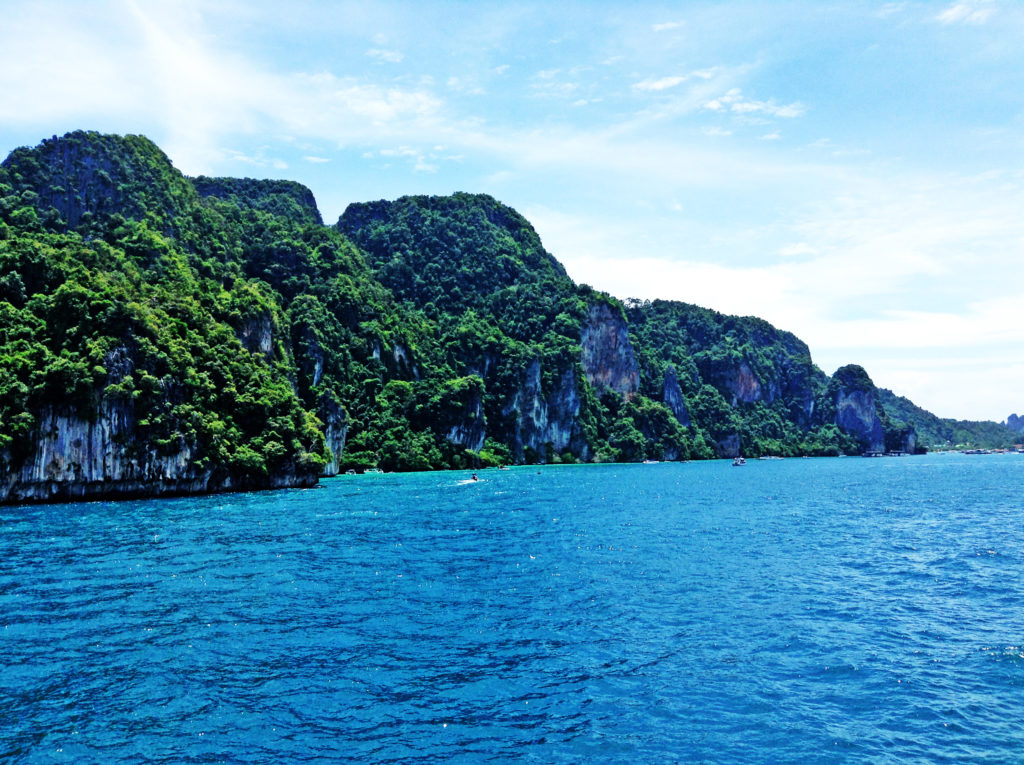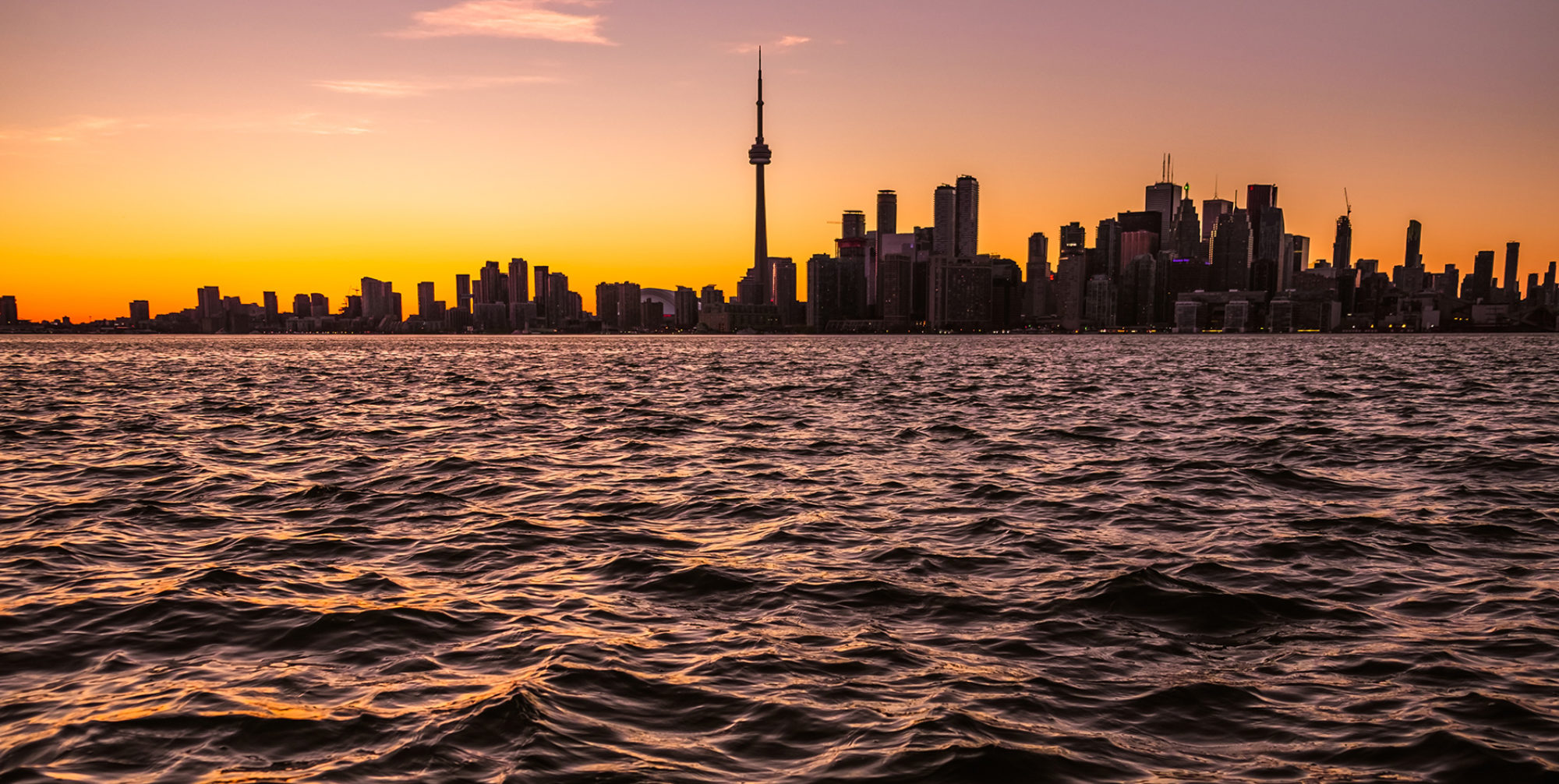
Tourism is one the fastest growing global industries, providing one out of every 11 jobs in the world, with more than a billion people travelling internationally in a given year, according to the World Travel and Tourism Council. We have reached a point in history where more people are travelling than ever before as cruise ships, all-inclusive resorts, travel companies, hotels and hostels have made the industry much more accessible and attainable than in the past.
And who can blame people for wanting to travel? What’s more exciting than exploring a new and exotic landscape or diving into the tropical waters of a blue lagoon? The world is rich with culture, food, and architecture that is alien to us unless we set off down the beaten path and experience the tourism industry for ourselves. But while we may love the foreign lands that we visit, what is the impact of our short stay in a country? Do we end up destroying the places we cherish, simply by going there? Are we ruining the world for the sake of our own tourist experiences?
“I live in Thailand, so I see firsthand what has happened. Islands ruined, local communities ruined, people leaving education to work in bars where selling tacky products to drunk tourists pays more than life as an engineer or physicist. It’s a sad state of affairs, but we’re all complicit in it,” creator of the popular travel blog onestep4ward, Johnny Ward said.
In the southern part of Thailand sits Koh Phi-Phi, an island famous for its white-sanded beaches, crystal blue waters and lush jungle landscape that runs throughout. The island is also home to Maya Bay, a secluded national park popular with paradise-seeking travellers and made famous for being the backdrop in the 2000 film The Beach starring Leonardo DiCaprio. Maya Bay can only be reached by boat, but once the boat docks, tourists are able to experience the breathtaking, tropical and serene setting. It sounds perfect – doesn’t it?
As a result of the film, Maya Bay has become a hotspot with as many as 4000 visitors in a given day. Clearly not so secluded anymore.
“I first went to Maya Bay when I went to Thailand in 2006, it’s amazing to see how popular of a spot it has become since then. I was there maybe two years ago and I was shocked at how many people flooded the beach but that’s the thing with tourism, people will pay money to go somewhere without thinking about the consequences,” frequent traveller Molly Cunningham said.
Whereas most Thai national parks close for four months of the year, Maya Bay has remained open year-round ever since Leo famously killed that shark on screen. That is, until recently. In March, Thailand’s National Parks and Wildlife Department decided to close Maya Bay to the public for four months each year. The heavy flow of boats and tourists has made the environment of Maya Bay unsustainable as the coral reefs and sea life surrounding the area has become almost nonexistent.
Over 2,000 miles east of Maya Beach you’ll find Boracay, a small island in the Philippines. The island is a popular tourist destination known for its vibrant nightlife and famous beaches. But despite its attraction to travellers, Philippines President Rodrigo Duterte recently declared a state of calamity and announced that the island will be closed to the public for six months, describing it quite frankly as a “cesspool”.
The once clear waters that surround Boracay have become unsustainable due to the immense flood of waste as a result of tourism activity. “Getting drunk in Laos and Thailand for months on end, causing trouble, was a rite of passage for the ‘gap year’ crowd…I honestly believe the spotlight has shone directly on the bad practices,” Ward said.
According to data from the Aklan Provincial Tourism Office, the island of Boracay saw about 1.7 million tourists in 2017 and the mass influx has had damaging effects on the tropical environment. The six-month shutdown is intended to provide a massive cleanup while also replacing the unregulated sewage pipes that have been damaged due to the overcapacity of tourists.
Travel website TripHobo lists countless examples of destinations affected by tourism activity including ancient monuments like the Colosseum and The Great Wall of China being vandalized, the rise of cruise ships in Antarctica polluting the waters and the animals in Masai Mara are being harmed and lost at an unprecedented rate.
The industry has long used animals as money-generating props to attract tourists.
“My favourite aspect of travelling is seeing animals in their natural habitats that I wouldn’t normally get to see in Canada but I’ve seen far too many countries put animals in situations that are cruel,” traveller and biology teacher, Gareth Cullen said. “Feeding platforms for animals, elephant rides and tiger temples, it’s all just a way for tourists to get a good picture,” he said.
Elephant rides and tiger temples have become a staple of Thailand’s tourism industry, with many traveller’s taking part in the controversial activities.
“Animal tourism is never cool, ever,” Cullen said. “I’ll admit it, when I first came to Thailand I took part in a lot of the touristy things like riding an elephant or visiting a tiger temple. I was young and uninformed and thought ‘this is so cool, I’m riding an elephant!’ but I was wrong. The animals suffer for the sake of money and people buy into it because most people love animals. There are a lot of places in Thailand that protect animals but unfortunately there are a lot of places that don’t,” he said.
Aside from affecting the environment and wildlife, the booming travel and tourism industry is harming local communities and the people living there, with many travellers choosing to stay in expensive hotels and eat at familiar corporate restaurants.
“When we choose to stay at places that are big international hotel chains or resorts or if we choose to eat at the McDonalds, what we are essentially doing is we’re spending money that never actually ends up in the hands of the place that we’re in,” executive director of Operation Groundswell, Eyal Rosenblum said. “The majority of the money gets pulled back to people who are already extremely wealthy or come from countries of extreme wealth,” he said.
Operating since 2006, Operation Groundswell offers travel programs focusing on education, human rights, health and the environment. To date Operation Groundswell has provided trips to over a thousand ‘backpacktivists’.
“The simple act of making a decision to go with a locally owned or family-run guest house versus a big hotel, the experience is going to be more special and intimate,” Rosenblum said. “You’re also ensuring that money stays in that community and when the locals spend that money in their community, they’re going to be lifting up other people who live there. The multiplier effect of just spending our dollars towards local economies is massive and the simple act could drastically change the lives of millions of people,” he said.
Traveller Gareth Cullen agrees with Eyal’s views on supporting the growth and prosperity of local communities.
“Always go local, stay in a local house or Airbnb over hotels or chains if you can. Eat local food from markets and vendors, speak with locals and learn their history, and if you’re keen to get involved in local projects to help the community and the people living there,” Cullen said.
Immersing yourself in a different culture and supporting the local economies of places we visit can create positive change while also heightening the entire travelling experience. While this sounds ethical on the surface, there are drawbacks to tourists wanting to take an authentic approach while travelling.
“People are more concerned in authenticity than they are with responsibility or ethics,” Rosenblum said. “There’s a danger in people trying to constantly seek out these authentic experiences,” he said.
Eyal is referring to a lot of travellers who while trying to be “culturally woke,” don’t necessarily put the needs or the best interests of the visiting country at hand.
“There’s always this kind of ‘we want to do something good’ and then there’s this backlash to that which is good intentions don’t always create good outcomes, this ‘be a traveller don’t be a tourist’ idea which essentially leads to people taking advantage of regions and communities where people don’t have a lot of power,” he said. “This can easily be fixed or avoided by taking an ethical approach to education abroad, and how we educate ourselves because there is a lack of inequality, a structural inequality between the places we travel to and the people who live there versus who we are travellers,” he said.
Eyal recalls a time where he met with one of Operation Groundswell’s partners in Cambodia, and the impact it had on him as he realized the wonderful connections and work he’s been able to do while advocating for an ethical change in the industry.
“I remember sitting in their office, talking about their future, talking about OG’s future, and just figuring out ways that we can continue to support each other,” he said. “It wasn’t transactional, it was partnership building, it was solidarity building. I thought that was very powerful, it made me so happy to see our regional staff and our regional directors approach our partners with humility and respect and let them take the lead since they know their countries and communities better than we ever could.”
Taking a more social, ethical and sustainable responsible approach to travel and tourism may not be for everyone. There won’t necessarily be all-inclusive resorts, luxurious hotels, or massive cruise ships for you to be pampered. But by taking more responsibility to how we travel, we can reduce the negative impact that our tourism activity causes. It’s an idea to simply make people more aware and respectfully conscious of their impact as a tourist by minimizing the negative consequences of travelling and instead, maximizing on the positive.
“It’s just about awareness,” Johnny Ward said. “Be mindful of where you are, who you’re representing. Be humble and aware of how fortunate you are to be in a position to travel, don’t take it for granted and try to respect the people who work to ensure you have a good time.”
